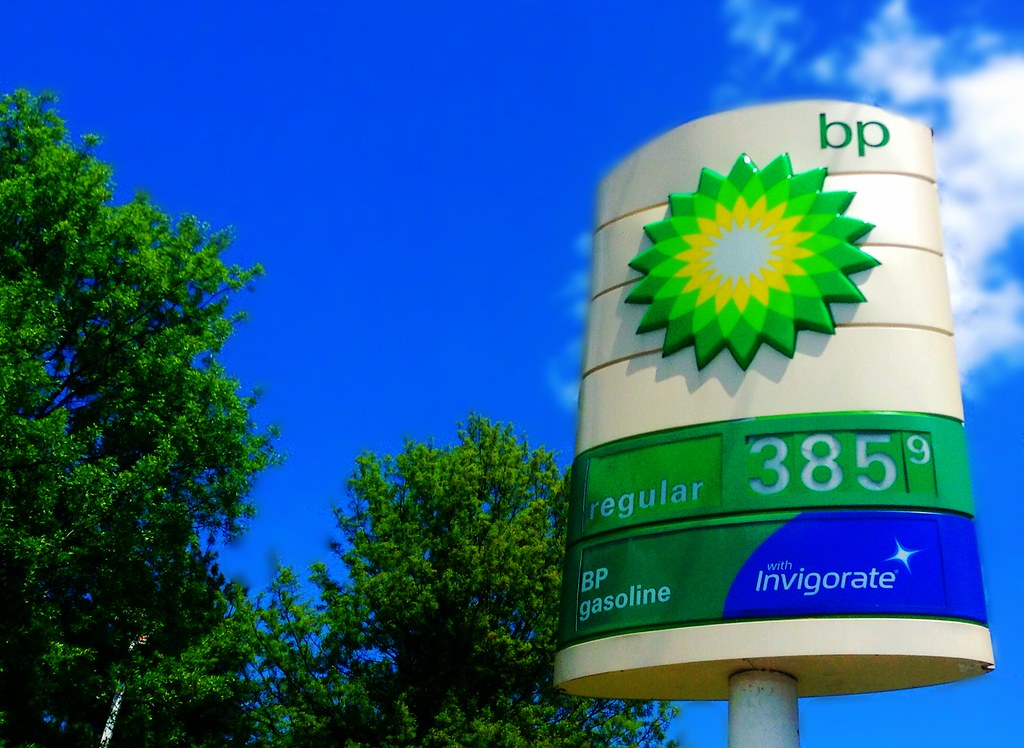Big oil companies like BP and Shell in the UK and international giants like ExxonMobil and Equinor in Norway have been announcing huge profits.
Because of the invasion of Ukraine, oil and gas prices have gone up, which is good for everyone.

While these businesses are generating a lot of money, people all across the world are having difficulty paying their energy bills and filling up their cars. Calls for greater taxes on these businesses have resulted from this.
So how do they make so much money, and should the government do something to stop them?
Why have oil prices gone up so much?
Oil and gas are traded all over the world. If there aren’t enough supplies and there’s a lot of demand, sellers can charge more, and the price goes up.
Russia was the world’s largest oil and gas exporter before the conflict in Ukraine.
The Russian government received a large portion of the money that consumers paid to purchase oil and gas. Exports accounted for 45% of the Russian government’s budget in 2021.
After the invasion, Western countries like the UK and EU tried to stop getting energy from Russia, or at least drastically cut down on it, so they wouldn’t be paying for the Russian military or helping a hostile government.
Countries that didn’t want to buy oil from Russia had to pay a lot more for oil from other places.
As economies reopened after Covid-19 lockdowns, oil prices were already going up, and people needed more oil.
The price of a barrel of oil went over $100 the day after Russia invaded Georgia, and it peaked at over $127 in March before going back down to about $85. After the invasion, gas prices also went way up.
Oil and natural gas are used in almost every part of life today. Oil is used to make gasoline and diesel, and natural gas heats homes and cooks food.
They are also used in agriculture, the production of electricity, and other industrial processes that make everything from fertilizer to plastics.
So, a steady rise in oil and gas prices raises the price of many other things we buy. This is what has caused the cost of living crisis that has hit the UK and other countries in recent months.
Why do prices going up mean more money in the bank?
Oil companies make money by drilling down to find oil and gas reserves hidden in rocks below the surface of the earth.
When the price goes up or down, the costs don’t change that much, but the money they make from selling it does.
So, when oil prices went up after the invasion of Ukraine, these companies made a lot more money selling oil and gas.
How much did Shell and BP earn in profits last year?
BP announced record annual profits of $27.7 billion (£23 billion) for 2022 on Tuesday. It also changed its plans to cut the amount of oil and gas it makes by 2030. Those profits were twice what they were the year before.
In February, Shell said that it had made the most money it had in 115 years. In 2022, profits will reach $39.9bn (£32.2bn), which is double what they were the year before.
Many regular people own shares in BP, Shell, and other global oil companies, so the money they make doesn’t just disappear. This could be done through their pension funds, and they might not even know it.
Higher dividend payments and share repurchases are two ways to return some of the extra profits to shareholders (which raises the share price).
However, as long as billions of dollars continue to flow in and consumers struggle to make ends meet, people will continue to call for greater taxes.
How much tax do companies that make oil and gas pay?
Even after giving billions to governments around the world, big oil companies made record profits.
BP and Shell are in a tough spot because their headquarters are in the UK, but they only get a small amount of oil and gas from UK waters. Most of their money comes from activities all over the world.
Shell paid $134m (£110m) in taxes on its UK operations in 2022, out of a total $13bn tax bill for the whole world.
BP paid $2.2 billion (£1.8 billion) (out of a total tax payment of $15 billion) in taxes for its UK activities.
What tax laws apply to oil firms in the UK?
Oil corporations already pay a 40% tax on their oil and gas production income in the UK, which is more than other businesses are required to pay.
However, businesses can reduce that tax burden by balancing future investments and losses from earlier years with the cost of closing down ageing oil rigs.
BP and Shell haven’t paid taxes on their UK operations in some years, but the UK government has given them money instead.
After the invasion of Ukraine, there were calls for the government to put an extra “windfall tax” on the profits of energy companies to help pay for rising energy bills.
This started in May 2022, and in November, it went from 25% to 35%. It is now expected that all the companies that work in UK waters will give an extra £40 billion between 2022 and 2028.
However, the windfall tax only applies to UK oil and gas production earnings, which represent a relatively modest portion of certain businesses’ revenues.
Additionally, businesses are able to deduct more than 90% of the price of new exploration and production from their taxable gains. They can pay much more easily as a result of this.
All of Shell’s UK tax bill and $700 million (£538 million) of BP’s came from the windfall tax.
People want them to pay even more taxes.
Politicians, environmentalists, trade unions, and people who work to end poverty have all criticized the record profits of oil companies and called for higher taxes on windfalls.
They say that war is to blame for the high prices and that it’s not fair that oil companies are making money off of people’s suffering.
Some people say that higher windfall taxes are a good way for governments to get money because they are easy to collect and hard to avoid.
Even Ben van Beurden, who used to run Shell, wondered if governments would have to tax energy producers more to protect the poor.
But oil companies say that a higher windfall tax would make them less likely to invest in oil production in the UK. Instead, they would look for oil in places with lower taxes.
Harbour Energy makes more oil and gas in the UK than anyone else. Because of the windfall tax, it is cutting jobs and rethinking its investments in the UK.
If the UK government decided to tax BP and Shell more on their global profits, they might move their headquarters out of the country to avoid the new tax and stop giving the UK as much money as they do now.
Oil companies have to do business in a world where the price of oil can go up or down quickly and with little warning. When oil prices are low, the money made in good years helps to make up for it.
Last year, many oil companies lost billions of dollars on investments in Russia. For example, BP wrote off $24 billion in investments in the Russian oil company Rosneft.
They also have to spend billions of dollars to find new oil reserves to keep supplies going until the world switches to power from renewable sources.
Energy companies also have a big part to play in this change. BP and Shell put some of the billions they make from oil and gas into renewable power sources like solar and wind farms and charging stations for electric cars.
Bernard Looney, the head of BP, said that the British company was “helping to give the world the energy it needs” by investing in the switch to green energy.
Wael Sawan, the CEO of Shell, said that these are “extremely hard times” because inflation is rising all over the world, but that Shell was doing its part by investing in renewable technologies. Sinead Gorman, the company’s chief financial officer, added that Shell had paid $13 billion in taxes around the world in 2022.
But because demand for oil and gas is so high, BP changed its plans to cut its carbon emissions this year.
Does the energy cap cut into the profits of oil companies?
The energy price cap was implemented in 2019 to prevent businesses from overcharging customers who failed to shop around for better prices. It targets energy-selling businesses, but it has no impact on how much money oil and gas firms make.












